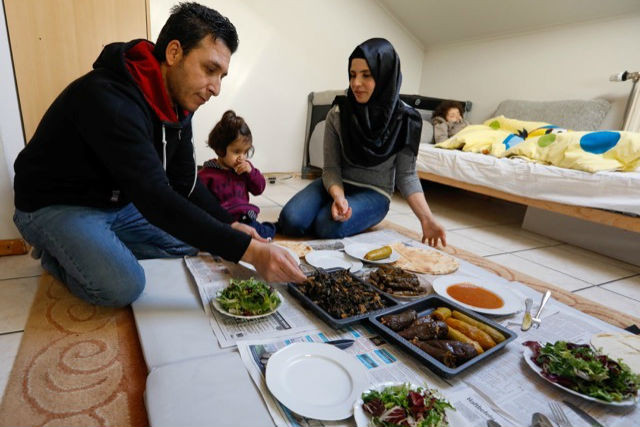While there are already a number of welcome guides for expats moving to Luxembourg, few cater to the specific needs of people displaced by conflict.
Youarewelcome.lu, made by the Mobile Interaction for Refugee Integration (Miri) team at the Interdisciplinary Centre for Security, Reliability and Trust (SnT), is the first which proposes to do just that.
“We’re using technology to improve the social status of refugees,” associate in mobile learning Gilberto Fernandes told Delano on the sidelines of the SnT partnership day on 5 June.
He explained that the project was devised around the same time that the number of people applying for international protection in Luxembourg was steadily rising.
“What we saw is the people who come through the Balkan route either had a tablet or a mobile,” he said, adding: “They needed to stay in contact with what was happening in their country or to navigate through a safe spot. We were astonished, the information was present but scattered.”
2016 launch
Working with other organisations supporting the integration of displaced people like Asti and also with two refugees working as interns, the Miri team launched the site in 2016, in English, Farsi and Arabic. They created a space containing all the kinds of information a displaced person might need before coming to Luxembourg. In a second stage, the team analysed the needs of displaced people in Luxembourg in order to better integrate in Luxembourg society.
Among the key findings were that asylum seekers needed information about housing, where to get financial support and how to apply for international protection. For those who had refugee status, the main questions were related to language learning, how to learn languages quickly to integrate the job market.
In the next stage, the researchers are creating an interactive mapping tool by which users can contribute to other people’s integration by sharing their own tips. “For example, a refugee knows a shop where the shopkeeper speaks Arabic. He can put it as a point of interest,” Fernandes said.
A growing community
The number of people applying for international protection in Luxembourg has remained above 2,000 per year since 2015 while a further 560 applications were submitted from January to April 2018. A number of support organisations have sprung up to help integrate these new arrivals. However, as the Council of Europe’s commissioner for human rights Nils Muižnieks said during a visit to Luxembourg in December 2017: “Solutions must be found to enable asylum seekers and beneficiaries of international protection to integrate Luxembourg’s labour force as early as possible”.
The project, which has been shared with stakeholders in refugee foyers around the country and used by over 3,800 people, is expected to run until 2019.
